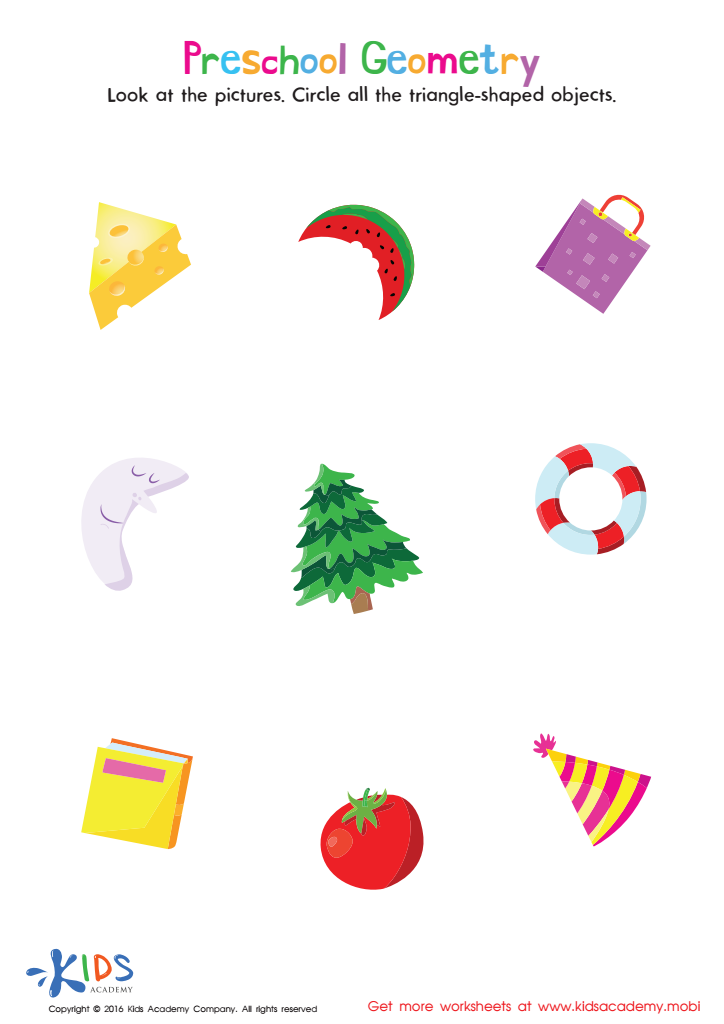Basic geometry understanding Geometry Worksheets for Ages 5-9
9 filtered results
-
From - To
Introduce your young learner to the world of shapes, angles, and lines with our "Basic Geometry Understanding" worksheets, tailored for children aged 5-9. These dynamic activities enhance fundamental geometry knowledge through engaging exercises and playful scenarios. Each worksheet transforms abstract concepts into tangible lessons, making it easier for kids to grasp shapes, patterns, spatial awareness, and more. Whether at home or in the classroom, our fun and interactive approach ensures students build a solid foundation in geometry that will support their future math endeavors. Dive into the excitement of learning with our expertly crafted resources today.
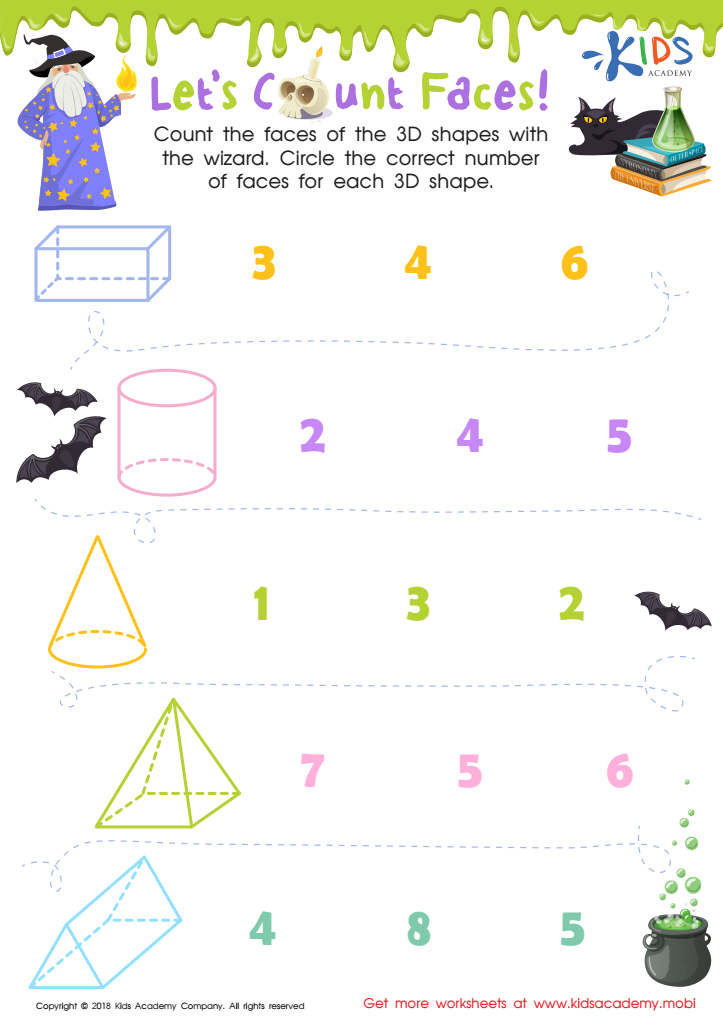

Let's Count Faces! Worksheet
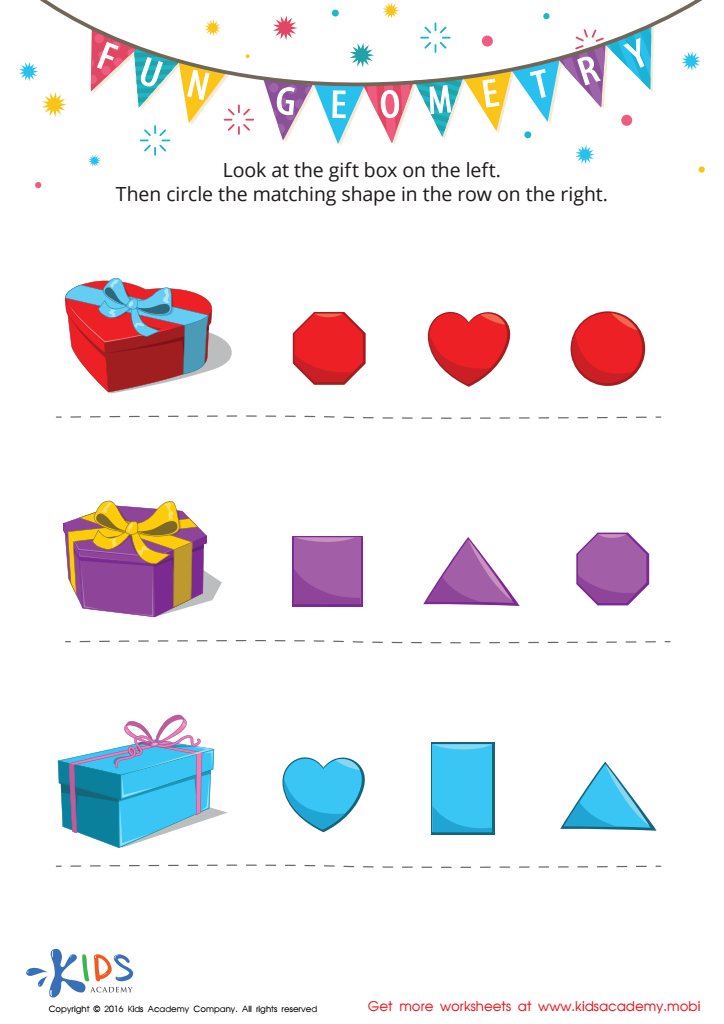

Fun Geometry Worksheet
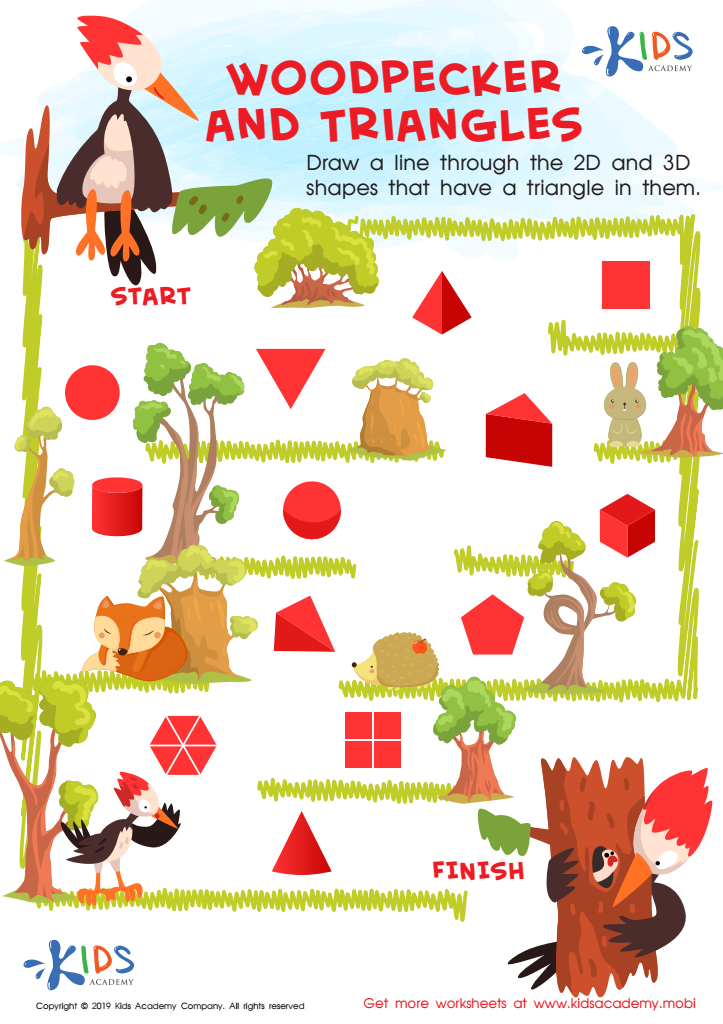

Woodpecker and Triangles Worksheet
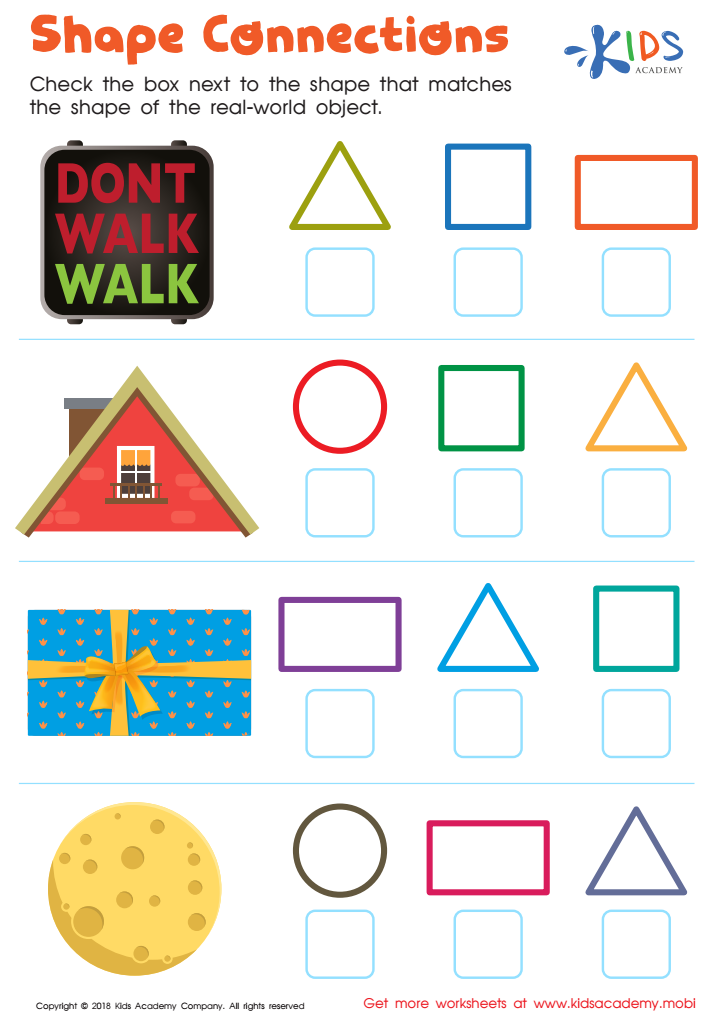

Shape Connections Worksheet
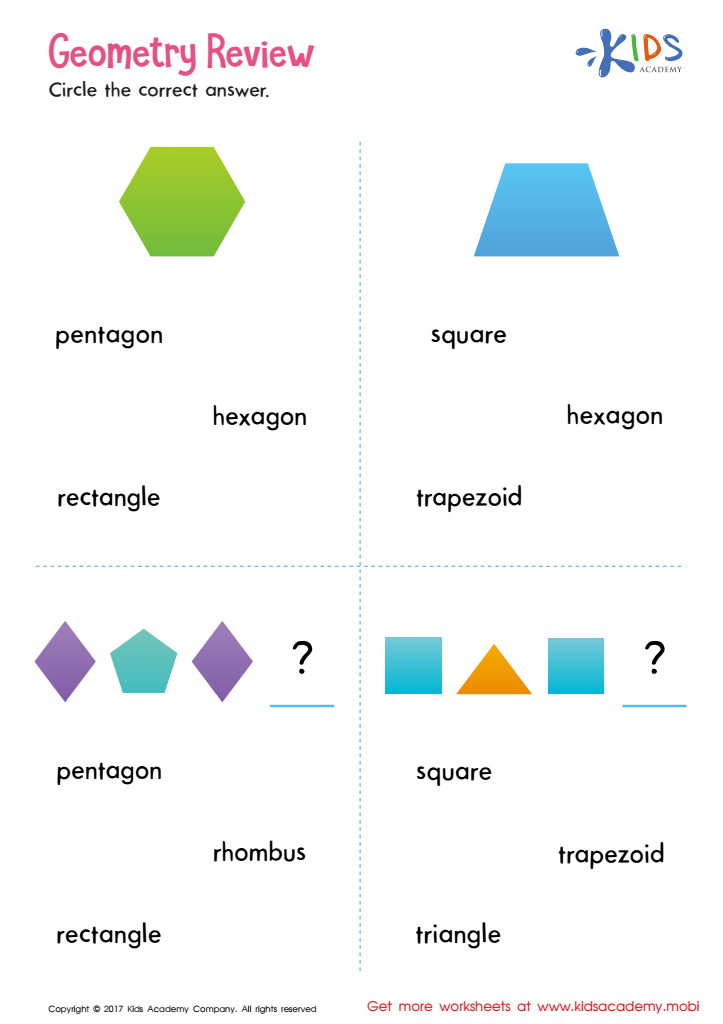

Geometry Review Printable
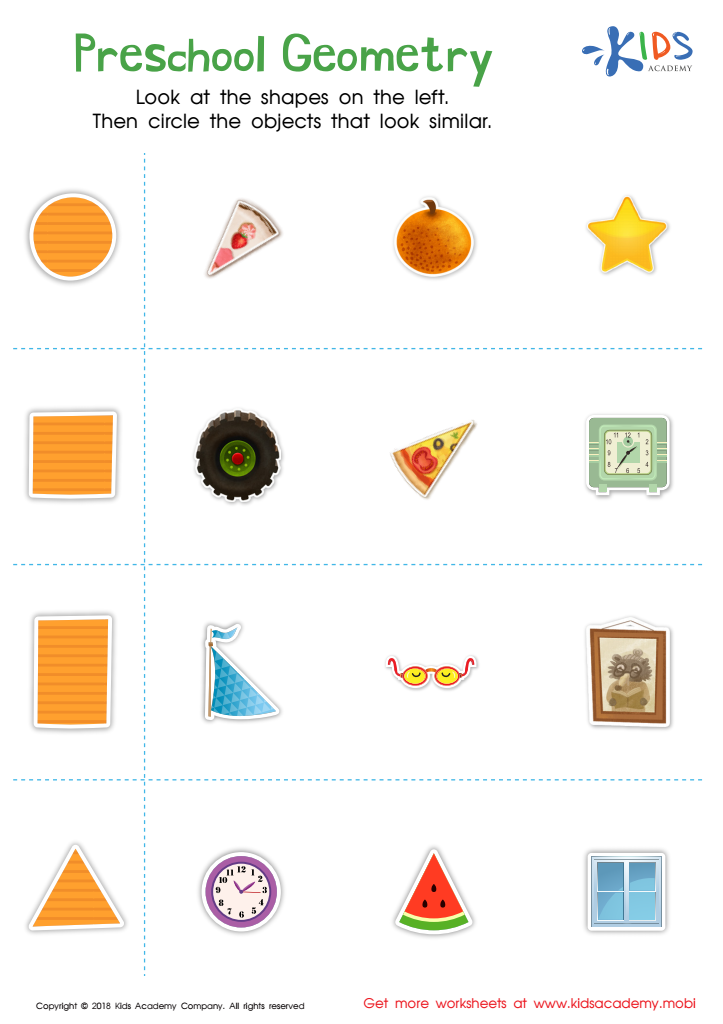

Preschool Geometry Worksheet
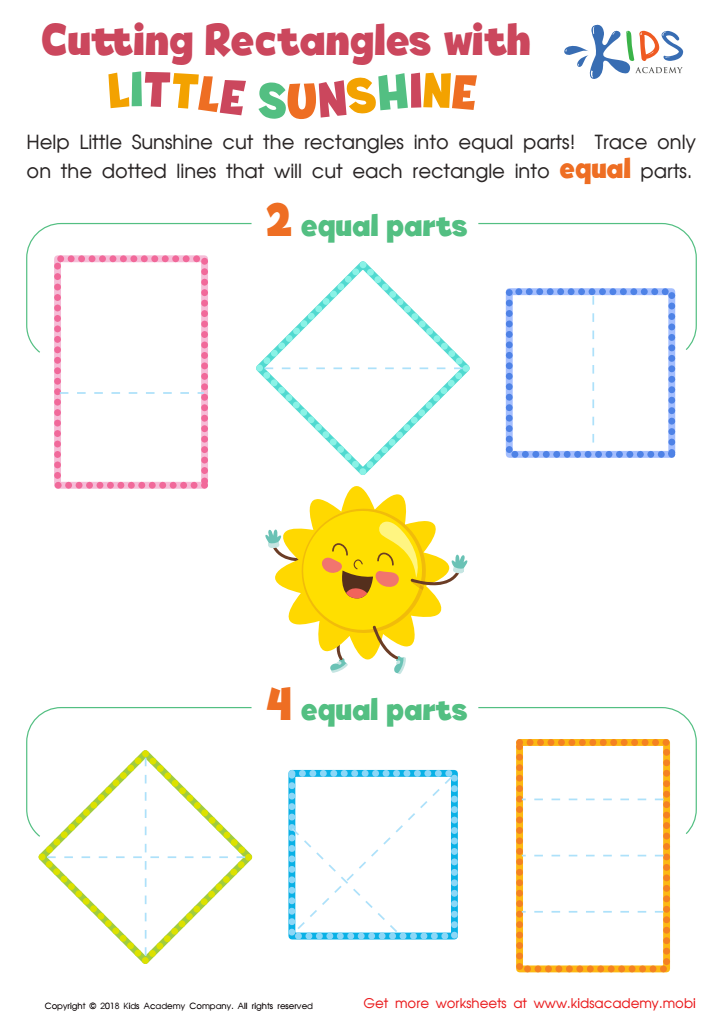

Cutting Rectangles with Little Sunshine Worksheet
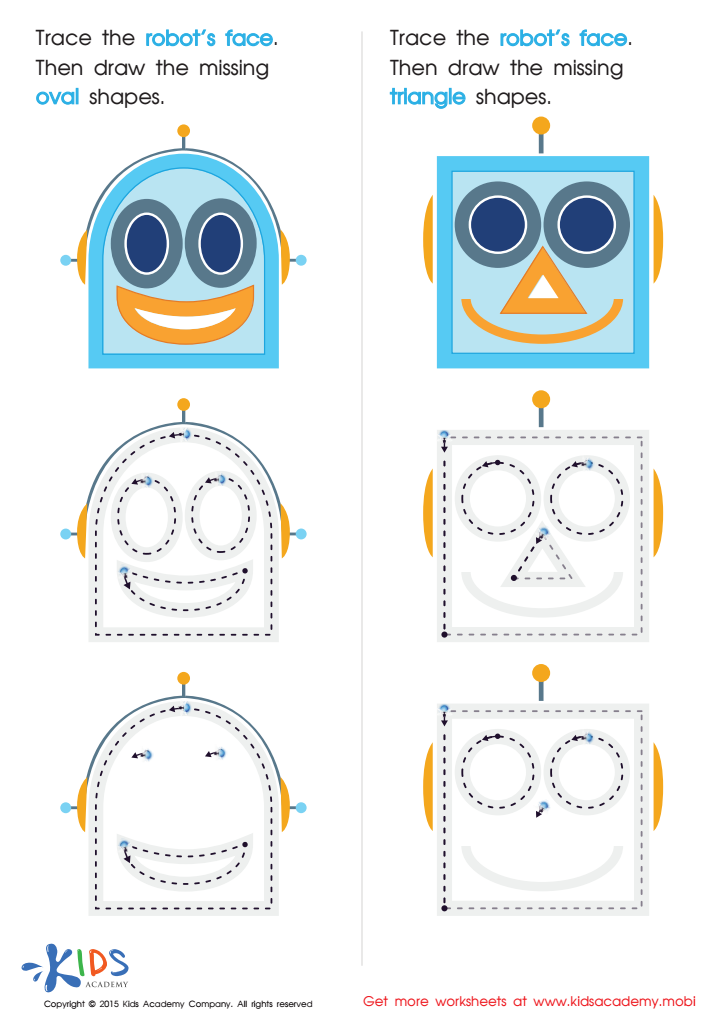

Drawing Ovals And Triangles with Fun Printable
Basic geometry is more than just shapes and figures; it’s a fundamental part of young learners' cognitive development and a foundation for various advanced subjects. For ages 5-9, understanding basic geometry supports critical thinking and problem-solving skills. When children learn about shapes, spatial relationships, and geometric properties, they enhance their ability to visualize and manipulate objects mentally. This spatial awareness is crucial not only for math but for everyday activities, such as navigating spaces and understanding physical relationships in their environment.
Additionally, geometry lessons can integrate with literacy and storytelling, making learning multidimensional and engaging. For instance, creating stories about shapes or using shape-based puzzles fosters both language development and geometric understanding. Geometry also introduces children to the idea of following complex instructions and recognizing patterns, which are skills they will use extensively in computer science, architecture, engineering, and many other fields.
Furthermore, engaging with geometry at an early age spark curiosity and enjoyment in mathematics. Providing a solid geometric foundation gives children a head start on their academic journey, ensuring they feel confident and prepared as they encounter more challenging math concepts in later grades. By valuing basic geometry learning, parents and teachers empower children with skills that are foundational to their overall cognitive development and academic success.
 Assign to My Students
Assign to My Students












